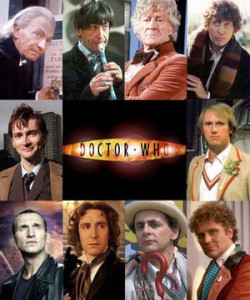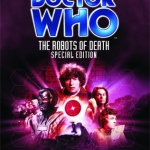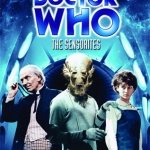It was 45 years ago (Earth time), just a day after the assassination of President John F. Kennedy, when Doctor Who materialized onto our television screens. Slotted between the football results and The Telegoons, a legend was born. Now it’s November 2008, and Doctor Who is still on the air, achieving a status that has gone beyond any other science fiction television series. After nearly 750 episodes, Doctor Who has cemented itself as a part of television history. For the month of November, Fandomania is going on a trip through time and space with our month-long salute to all things WHO.
All tribute videos are edited by Stuart “BabelColour” Humphryes
What is Doctor Who?
Doctor Who is the longest running science fiction series in the world. It began broadcasting on November 23rd 1963, the day after the assassination of John F. Kennedy. The premise of of the series revolves around a mysterious man known only as The Doctor. The Doctor is an alien who travels every where and everyWHEN through time and space in his magnificent spaceship called the TARDIS (Time And Relative Dimension In Space). Along the way he battles monsters and saves planets and galaxies. His real name is a mystery, and his past is a riddle. Even though he lives a perilous life, he always has company along for the ride. Be they human, alien, or robot dog, The Doctor’s companions are always joining in on the excitement.
The series began with veteran actor William Hartnell in the title role. Hartnell was instantly enamoured with the role, and his singular portrayal of the character made him beloved by audiences of all ages. However, it was the debut of the show’s most notorious monsters, The Daleks, which catapulted the show into a bona fide sensation. The show had a healthy run for the next three years, but Hartnell’s own health was in decline, which led him to reluctantly decide to leave the show. Realizing the show was way too popular to scrap, the producers took advantage of The Doctor’s enigmatic nature and came up with one of the show’s most memorable traditions, regeneration. Regeneration is the ability of The Doctor’s race to renew their bodies as a way to cheat death. This provides a dramatic change where The Doctor’s body and personality give way to a totally new man. The identity, however remains the same.
The original series ran from 1963 to 1989, and in that time seven actors played the wandering Time Lord. The series hit a creative slump in the mid 1980’s, but in the last two years it began showing signs of life again. Tragically this did not stop the BBC from suddenly and unceremoniously canceling the series. Doctor Who continued to thrive in a series of novels which chronicled the further adventures of The Seventh Doctor. Then in 1996 the BBC, in association with the FOX Network, attempted to resurrect the series starting with a TV movie. The TV movie introduced a new Doctor played by Paul McGann (Alien 3, The Three Musketeers). Sadly the TV movie was met with low ratings in the USA. In Britain, nine million people watched the special. Now Paul McGann’s Doctor lives on in a continuing book series and a series of radio adventures produced by Big Finish. The Big Finish audio adventures also feature The Fifth, Sixth, and Seventh Doctors, and they fill in many gaps left in the classic TV series.
The show remained in creative limbo between screens large and small until 2004. In 2004 the BBC announced that it was finally time to bring Doctor Who back to our TV screens. The man they chose for the herculean labor of resurrecting the series was Russell T. Davies. Davies was already renowned as a television writer, famed for such TV shows as Queer As Folk, The Second Coming, and Casanova. Being a ravenous Doctor Who fan, Davies was the ideal man for the job. Davies decided to make the show accessible to a new audience and thus decided to cast a new Doctor. This Doctor came in the form of Christopher Eccleston. He was a very popular choice for the character, since Eccleston was already widely renowned for his performances in 28 Days Later, Shallow Grave, and The Second Coming, in which he had collaborated with Russell T. Davies.
Eccleston gave The Doctor an intense, brooding edginess, and his performance heralded Doctor Who‘s return to greatness. However, midway through the initial run of series one, Eccleston dropped a bomb by revealing that he was only staying in the role for one year. At the conclusion of the first series, The Ninth Doctor regenerated, and the man who would take the TARDIS controls was David Tennant. Tennant had previously starred in Russell T. Davies’ Casanova, and when he was offered the role, Tennant leapt at the opportunity to play the part. To this day, Tennant has become the quintessential Doctor for this generation. Many people credit Tennant for escalating Doctor Who‘s popularity. What used to be a British institution now has become a worldwide phenomenon. So much so that even the Doctor Who spin-offs Torchwood and The Sarah Jane Adventures also have been embraced by the masses.
Forty-five years and beyond, Doctor Who has survived censorship, creative lulls, and potential oblivion. Despite all that, after all this time, that impossible man in that impossible police box is still flying from here, to the end of the universe, and all the places in between.
John’s Doctor Who tribute continues tomorrow with the second part of this article series.







